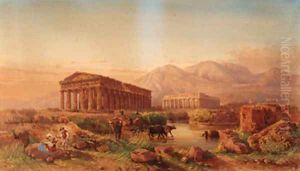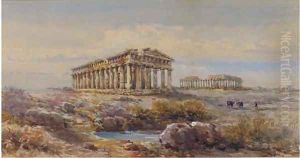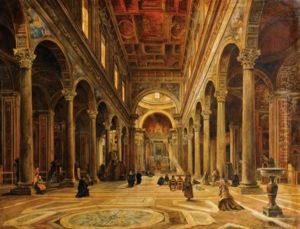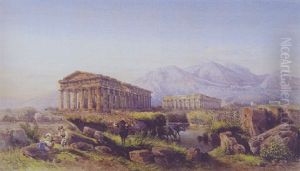Giovanni Lanza Paintings
Giovanni Lanza was an Italian statesman, primarily known for his role in politics rather than contributions to the world of art or art history. Born on February 15, 1810, in Casale Monferrato, Piedmont, Lanza was deeply involved in the political movements of his time, particularly in the context of the Italian unification process, known as the Risorgimento. He pursued a career in medicine after studying at the University of Turin but was increasingly drawn into the political sphere, advocating for liberal reforms and the unification of Italy.
Lanza's political career took a definitive shape when he was elected to the Piedmontese Chamber of Deputies in 1848. He was a member of the Historical Right, and his political trajectory was marked by his moderate yet firm approach to governance. He served in various ministerial roles, including Minister of Public Education and Minister of the Interior, where he focused on reforms in education and administration. Lanza is perhaps best remembered for his tenure as the Prime Minister of Italy from 1869 to 1873, during the reign of King Victor Emmanuel II. His administration was characterized by efforts to stabilize Italy’s finances and to integrate the various parts of the country into a unified legal and administrative system.
Despite his significant contributions to Italian politics and the unification process, Giovanni Lanza's association with the arts is not what he is principally remembered for. However, like many of his contemporaries engaged in the Risorgimento, he was part of a broader cultural milieu that sought to redefine Italian identity, which included an appreciation for the arts as a means to foster national pride and unity. Lanza died on March 9, 1882, in Rome, leaving behind a legacy as a pragmatic politician and a statesman who played a critical role in the early years of the Kingdom of Italy.



